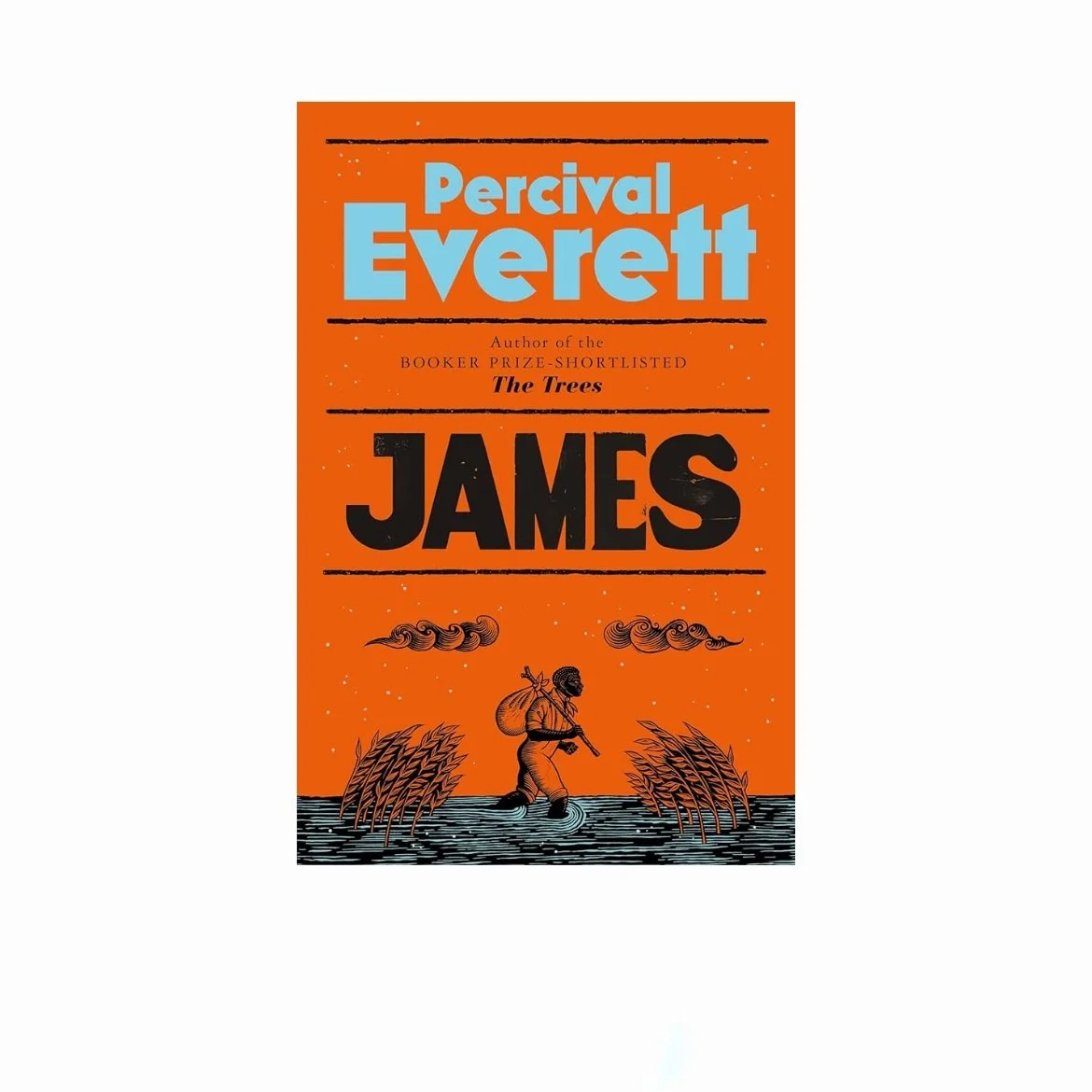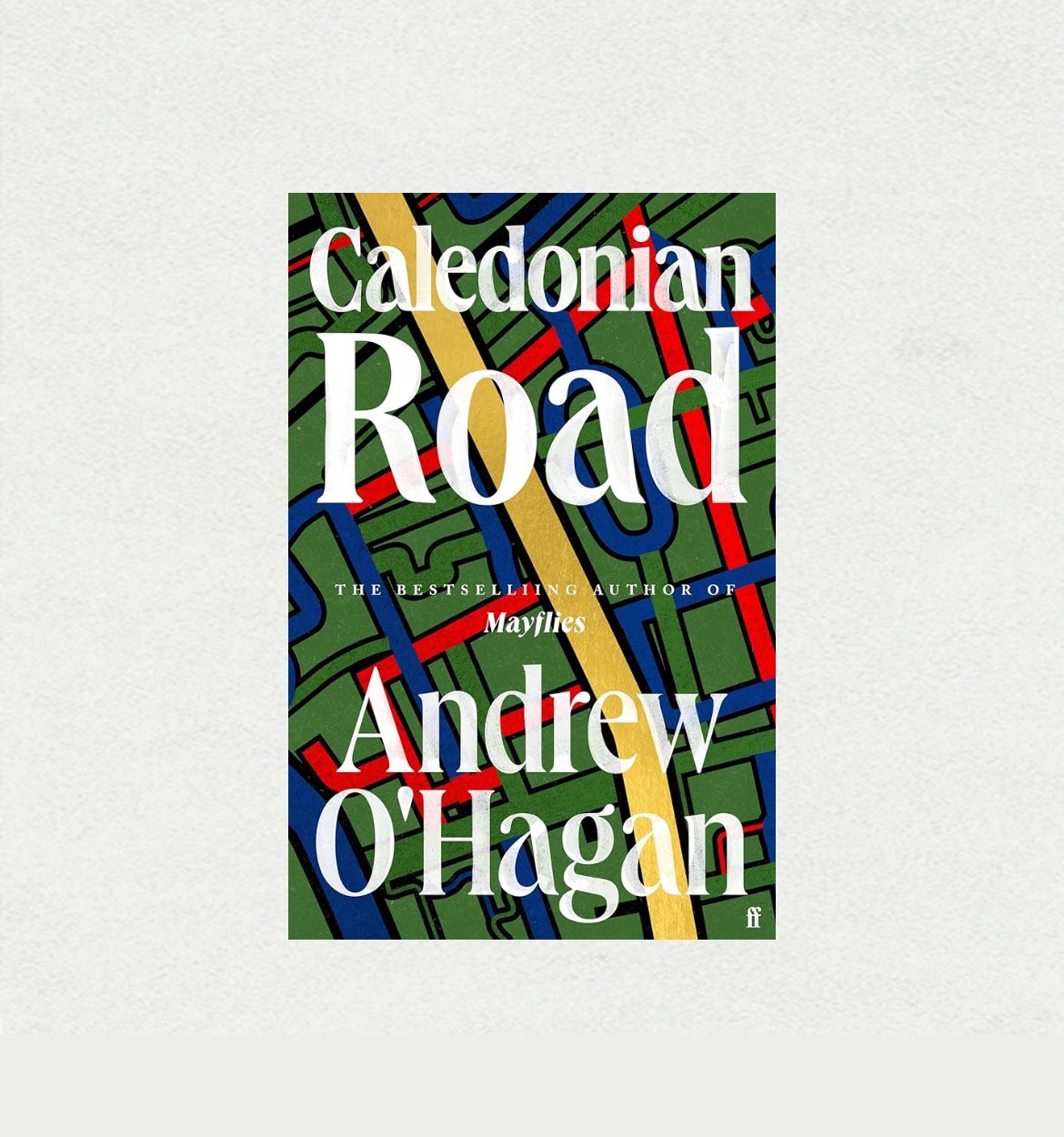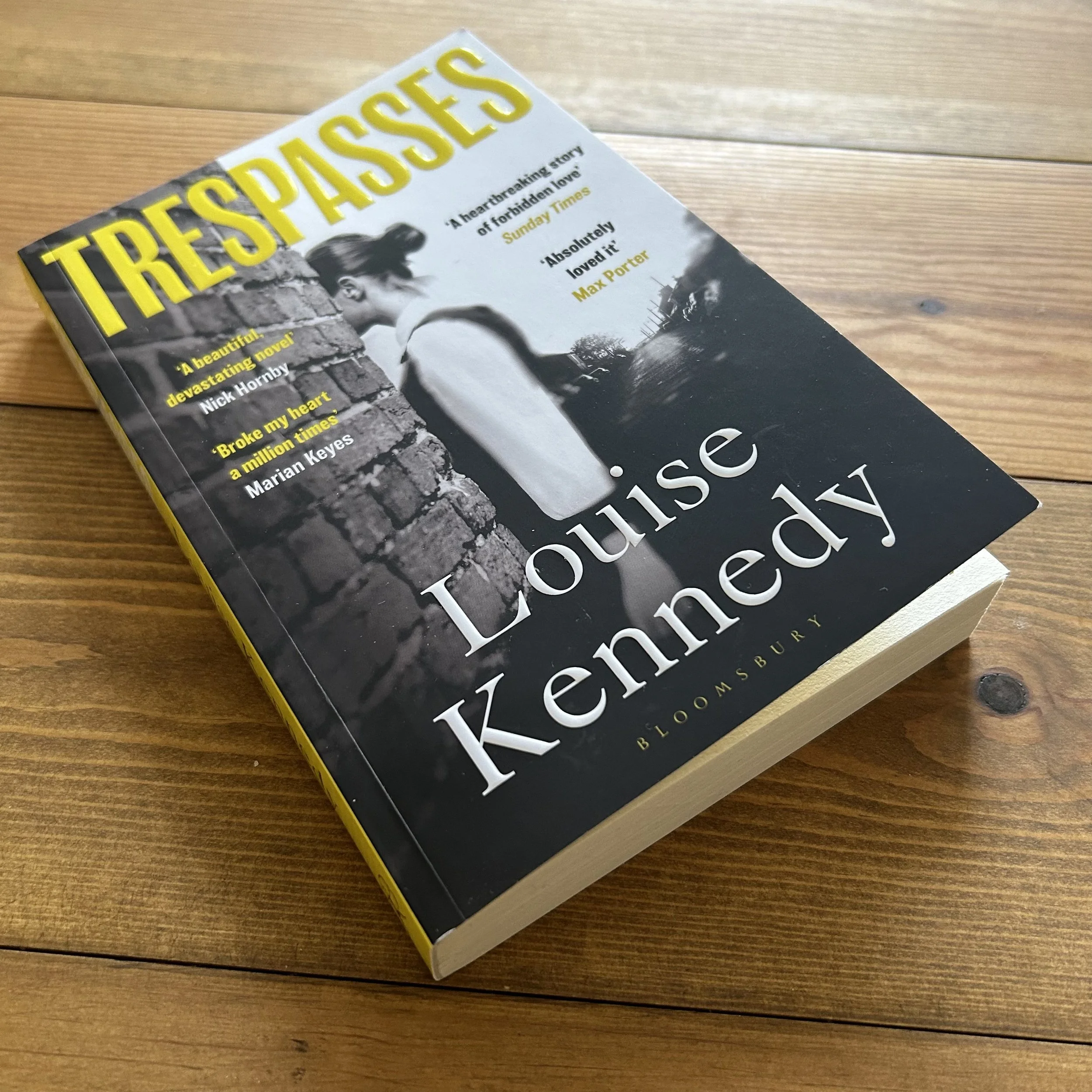
The City Changes Its Face (2025)
The City Changes Its Face is both a sequel to and a kind of retelling of McBride’s brilliant 2017 work The Lesser Bohemians. It joins that book’s protagonists, Eily and Stephen, just a few years after its events, with the setting roughly the same - we’re still in grimy mid-90s London, although the lovers’ new house is somewhat less poky and grim than their Camden dwelling in the first book. It hops around in time between the ‘present day’ setting of late 1996, and various periods in between the action of The Lesser Bohemians and that time. The broad concept is that the ‘now’ sections detail an argument between the two over the course of a day, with the hops back in time providing some context. In the middle of all of this is the book’s centrepiece, a description by Eily of a screening of a rough cut of Stephen’s autobiographical film, which expands on his traumatic backstory, this time artistically mediated and then interpreted by Eily, rather than in his first-person confessional voice as in the first book.
The Lesser Bohemians (2016)
The Lesser Bohemians is told from the perspective of Eily, and 18-year-old Irish woman, newly registered at a London drama school. As she settles in to her new life in 1990s Camden Town, she attracts the attention of Stephen, an actor of some renown in his late thirties. They begin an intense, passionate and often destructively turbulent relationship. Initially, it seems like the focus may be on the imbalance of power in their age difference, and their are certainly aspects of that, but ultimately the story develops in much more complex ways as each reveals details of their traumatic past, which in sharing binds them ever closer together.
We Do Not Part (2021, trans. 2025)
We Do Not Part is told from the perspective of a woman named Kyungha, an investigative journalist and writer based in Seoul. She lives alone and suffers from recurring nightmares that seem to symbolically intertwine natural elements and mass human suffering. She receives a message from her long-time friend and collaborator, a photographer, artist and filmmaker called Inseon. Inseon has been hospitalised following a woodworking accident, in which the tips of her fingers were sliced off (notably while working on a project suggested by Kyungha and inspired by her dreams, which she had asked her to stop).
The Mars Room (2018)
The Mars Room has as its protagonist Romy Hall, a San Francisco single mother and erstwhile stripper who is serving two life sentences in Stanville Correctional Facility for murder. She has killed a man, that much is true, but a man who was going to great lengths to stalk her, having struck up what he saw as a ‘relationship’ in the Mars Room, the strip club Romy performed in. That she has committed a crime is not disputed, but the fragments we see of her trial expose the fact that the criminal justice system leaves no room for nuance. Her primary concern in prison is initially survival, but shifts to the wellbeing of her young son Jackson once she hears that her mother, his guardian, has died.
Brotherless Night (2023)
Brotherless Night begins in Jaffna, in the Tamil-dominated north of Sri Lanka, in the early 1980s. Sixteen-year-old Sashi is studying hard, dreaming of going to medical school with her brothers and friend K. Her life is slowly torn apart with the onset of the Sri Lankan Civil War. While staying with her Grandmother in Colombo in 1983, she finds herself caught up anti-Tamil riots. Her eldest brother is killed and her grandmother’s house burnt down. Subsequently two of her brothers join the Tamil Tigers, and her fourth brother briefly detained by authorities before departing for England.
The Wren, The Wren (2023)
The Wren, The Wren is told from the perspective of three members of the same family. We begin from the perspective of Nell, a student and latterly author of clickbait-y online journalism, who is keen to break away from her claustrophobic relationship with her mother. This perspective alternates through most of the book with that of her mother Carmel, who has raised Nell alone after a brief affair. Looming over them both is the long shadow of Carmel’s poet father Phil., a womaniser who channels most of hs useful energy into poetry and otherwise appears as something of a moral and emotional vaccum. His nature-focused poems are dotted through the book, and we also get one chapter from his perspective towards the end.
In Defence of the Act (2023)
In Defence of the Act is told from the perspective of Jessica Miller, who is fascinated by the subject of suicide. She works in a lab which investigates suicide in animals, among colleagues she is sure have taken on that particular role with the view that their research will help understand and therefore prevent suicide in humans. Secretly, though, Jessica believes suicide may be - in some cases - a justified ‘act’ and even one which could be considered altruistic, or at least to the benefit of those who surround them. The roots of her unusual perspective are clearly in an incident in her childhood, in which she alerted her family to her father’s suicide attempt, therefore preventing it. He then went on to be consistently abusive, primarily to Jessica and her mother.
The Accidental (2005)
The Accidental takes place mainly in a sleepy village in Norfolk, where a middle class family from Islington, London are spending their summer. Eve Smart is the family’s mother, and a novelist who draws on real-life stories for her fiction, and is currently suffering from writer’s block. Her partner is Michael, also a writer and a university professor in London, who is prone to infidelity with his students. Eve’s daughters from a previous marriage (to an Adam, no less) are Astrid, a 12 year old girl with a love for photography and a delightful way with words, and Magnus, an older teenager with a scientific mind and a serious (and justified) sense of guilt hanging over him over an incident that happened before the holidays.
James (2024)
James is, in its simplest sense, a retelling of Mark Twain's classic The Adventures of Huckleberry Finn, from the perspective of the slave Jim. The original is loved and criticised (particularly around its complex handling of race relations) in equal parts, and Everett engages with it with a similar mix of obvious love for the source material and a clear sense of purpose in its interrogation of some of its more problematic aspects.
Caledonian Road (2024)
Caledonian Road is set largely on and around the titular thoroughfare, which heads northwards from near London’s King’s Cross station. Its action takes place in the very recent past, in a year’s period between early 2021 (and the ending of major Covid restrictions) and early 2022 (with Russian’s invasion of Ukraine on the imminent horizon). It’s introduced (at least in this pre-release version) by an extensive list of characters, setting the tone for the sprawling, somewhat Dickensian nature of the 600-ish pages to follow. At its undoubted centre, though, is the aging white liberal academic Campbell Flynn, clearly something of a proxy for the author. Having worked his way up in society from humble Glaswegian roots, through a combination of academic achievement and marriage into minor aristocracy, Campbell is a lecturer at UCL, a published art historian (most recently of an acclaimed life of Vermeer), sometime glossy magazine columnist and podcaster. Yet he senses shifting sands in society, and mostly the ones that uphold everything that he holds dears. Campbell, like the liberal intelligentsia he represents, is in crisis. And so, it seems, are his city and his country.
Fast By The Horns (2024)
Fast By The Horns is set in the Bristol neighbourhood of St. Pauls in 1980. It focuses on Jabari, the 14-year-old only son of the Rasafarian community leader Ras Levi. He exists in a clearly very close-knit community, but one that is constantly beaten down by corrupt policing and lack of council investment. Ras Levi and his fellow Rastafarians in the community, including of course Jabari, dream of repatriation to the Ethiopian motherland, though others in the community mock their ambitions and urge them to engage with the political realities of life in the UK. Amidst the violence and daily struggles with police brutality, Jabari's encounter with a young girl formerly from St. Pauls, who we find has been placed in the care of a white family in a neighbouring affluent area, provides a tender and emotional thread at the centre of the novel.
Study for Obedience (2023)
Study for Obedience is something of a difficult one to summarize. It’s a short book but in no senses a simple one. The unnamed female narrator arrives in an unnamed Northern European country (seemingly Scandinavian or Baltic), to tend to the needs of her successful oldest brother. Her own background seems fairly obviously Jewish, a fact that inspires hatred in the local residents, seemingly in part down to their past as collaborators (at least) in major atrocities (most probably the Holocaust, though it isn’t specifically named) against her people. Various troubles in the town, largely involving death of or disruption to local pets and farm animals, are attributed by the locals to her, and she is avoided, feared, and seemingly plotted against by the residents. With her brother frequently away on business, and she unable to speak the language, the whole thing has a fairly dense layer of mystery about it.
If I Survive You (2023)
If I Survive You is a mostly linked short story collection, based on the immigrant experience of a Jamaican family who moved to Miami following the turbulence in their home country in the 1970s. For much of the book, our focus is the somewhat autobiographical-seeming life of Trelawny, the family’s younger son, though we do also get stories told from the perspective of his father, his older brother Delano, and in the biggest departure of the collection, his cousin Cukie. The book deals with the struggle of survival in the face of everyday racism in the US, exacerbated by crises both personal and national - the latter including the major (and disproportionately racialised) impact of Hurricane Andrew and the 2008 Financial Crisis.
Prophet Song (2023)
Prophet Song focuses on Eilish, a microbiologist and mother of four (ranging in age from a baby to a seventeen year old) living in Dublin. In the background is the looming threat posed by a new authoritarian government in Ireland. Her husband Larry is an official in the Teachers’ Union, at the start of the novel still absorbed in his work and organising protests against the new government, believing the protections he has been used to in a democratic society still apply. Relatively rapidly, though, we learn that this is a new and significantly darker world, in which protests are violently suppressed and Larry himself is taken in for questioning by the stasi-esque Garda National Services Bureau (GNSB). Within days, he has disappeared, along with many other men in Eilish’s immediate circle.
The Power (2017)
The Power is a science fiction novel based around the premise of almost all women on Earth suddenly developing an extra organ (a ‘skein’) that allows them to shoot powerful bursts of electricity from their hands. Over a very short period, the balance of power in genders shifts and the novel sets out to explore the impact of this shift on society generally and a specific cast of characters from different backgrounds and locations.
The Glorious Heresies (2016)
The Glorious Heresies is a darkly humorous yet moving tale set in the criminal underworld of Cork, in post-crash Ireland. It shifts perspective between five central characters, most centrally Ryan Cusack, the eldest of six siblings who has lost his mother and despite high intelligence and a talent for music has fallen into a life of low-level drug dealing, only really gaining satisfaction from his relationship with Karine.
Shy (2023)
Shy is a short novel, with experimental and poetic flourishes, focusing on the inner life of the titular adolescent Shy. We find him, in 1995, in the appropriately named ‘Last Chance’ school, an institution offering an unconventional home for troubled teenagers with a history of delinquent behaviour. At the start of the book he’s setting off with a bag weighed down with rocks, heading for the school’s pond in the middle of the night, with an obvious intention in mind. We explore his mindset through both present tense interior monologue, flashback, and snippets of commentary from other sources - a therapist’s words, the narration of a documentary being made about Last Chance, the taunts of his classmates, and the lyrics of contemporary Drum’n’Bass tracks - his one true passion.
Pod (2023)
Pod is a distinctive novel in that it takes as its focus the lives of a series of marine creatures, notably dolphins. Its primary focus is on Ea, a spinner / ‘Longi’ dolphin who becomes detached from her peaceful and ‘civilised’ pod and finds herself among a boorish, violent pod of bottlenose dolphins, known in the book as Tersiops. Along the way we meet an array of other creatures, all with their own characteristics, including a wise old whale, a gender-switching Wrasse, giant clams and a fugu or two. Memorably, there’s also the captive bottlenose dolphin Google, who has been enslaved by humans (or ‘Anthrops’ in the novel’s parlance) for horrifying military purposes.
Trespasses (2023)
Trespasses tells the story of Cushla Lavery, a 24-year-old primary school teacher living on the outskirts of Belfast in 1975. She works occasional shifts in her family’s pub, managed by her brother and often stepping in for her alcoholic mother Gina. The violence and terror of Troubles-era Northern Ireland is a constant backdrop, and forms the basis of her young pupils’ life experience and their everyday vocabulary. Cushla’s town is relatively mixed compared to some more religiously segregated areas, and while her family are Catholic, their bar is frequently by a friendly mix of Catholic and Protestant drinkers, who by and large rub along well together. It’s at the bar that she meets the much older Protestant barrister Michael Agnew, with whom she begins a secret affair. In parallel, she begins to provide additional care to one of her young pupils, Davy McKeown, whose father has been maimed in an attack. Those two dominant strands of her life eventually intertwine with catastrophic consequences.
A Girl is a Half-Formed Thing (2014)
A Girl is a Half-Formed Thing is a stream-of-consciousness novel, told from the perspective of an unnamed Irish girl in highly distinctive, fractured prose. It’s largely addressed to her brother, also unnamed and referred to as ‘you’ throughout. His life is limited by the impact of brain damage from the removal of a childhood trauma, but the love between the two siblings is evident throughout, in a novel that doesn’t offer much else in the way of solace.




















